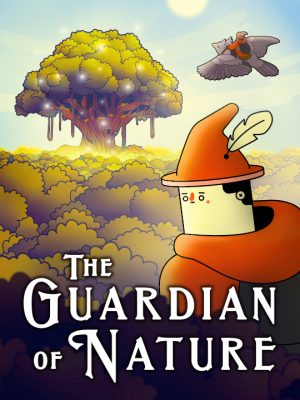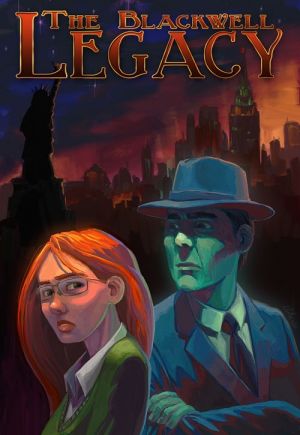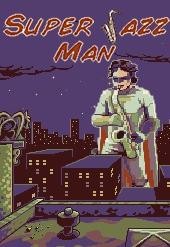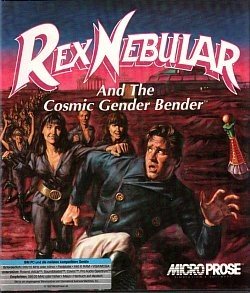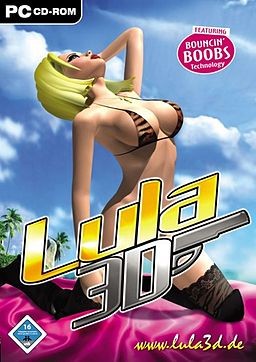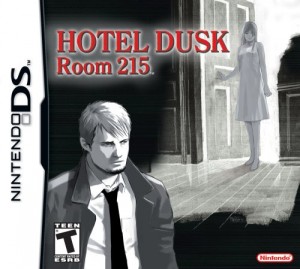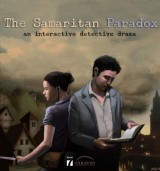Review for Doctor Who: The Adventure Games - Episode Four: Shadows of the Vashta Nerada
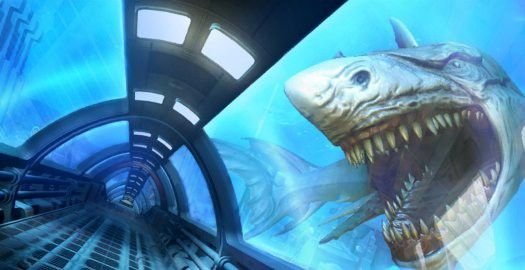
The Doctor Who adventure games from the BBC have been the definition of mediocrity to this point, with the exception of episode three’s disastrously disappointing experience in the TARDIS. For UK fans who get the episodes free, that’s a decent enough result, though others will be less motivated to shell out the small fee to purchase them worldwide. The current run of four digital sci-fi space travels comes to a close with Shadows of the Vashta Nerada, and while it does inherit all the key problems that have damaged the episodes thus far, as well as introducing a few of its own, the finale does stand as a relatively decent experience that is held together by its variety of gameplay rather than its story.
This episode starts where the previous one left off, with the Doctor and Amy in the 23rd century in an underwater city called Poseidon. Due to rising ocean levels, humans have begun farming and mining minerals from the watery floors. However, things aren’t as they should be, as a giant otherworldly shark (unrelated to the 2010 Christmas special on TV) is swimming outside the base, a mysterious sickness has taken over the crew and the Vashta Nerada – “the shadows that melt the flesh” – lurk in the darkness. With Poseidon now in quarantine, the aim is to discover why this weird turn of events has occurred and sort it out. This sounds like a simple enough task, but the story soon snowballs into a convoluted mess. Brief, confusing explanations of transdimensional gateways are tossed in with little reason, seemingly produced from thin air just to tie up loose ends. It’s annoying how little sense anything makes as the story reaches its conclusion, even by Doctor Who standards, especially since it’s quite an interesting premise ruined by a deus ex machina.
The Vashta Nerada previously appeared on TV with David Tennant’s incarnation of the Doctor. They are microscopic, lurk in shadows and are capable of stripping someone of their flesh instantly, leaving only the bones. Their ability to reanimate these skeletons adds an extra layer of creepiness, and it is genuinely unsettling (even more so than the Daleks or the Cybermen) when two undead creatures are slowly lumbering towards you and closing in from either side. It’s a shame the game doesn’t allow an emotional attachment to those who get attacked, however, or make use of the Vashta Nerada’s eerie ability to mimic someone’s shadow (by which time it’s too late to save them). Instead you nearly always come across others in skeletal form first, which distances the effect of what these horrific creatures actually do.
To be fair, this game actually has a decent number of supporting characters when compared to earlier episodes, totalling four different personalities in all (granted, one of them is only around for a couple of minutes and the other is a talking computer). Oswald, the captain, despite being a tad one-dimensional in his distrust of the Doctor, is complemented nicely by the medic Dana, who is keen to help wherever she can. While neither is particularly memorable, the larger cast goes some way in building a sense that Poseidon is a real working environment.
Shadows of the Vashta Nerada brings back the much needed environmental scale that was missing in the previous episode. While running through the base, you can look out the windows and see corridors snaking off into the distance or the shark menacingly patrolling the waters. Poseidon’s decor mostly consists of exposed machinery, such as pipes and fans across the ceiling or vented flooring and artificial lighting, giving a futuristic feel to the aesthetics, yet still firmly grounded in reality. It’s especially impressive when you come to huge panes of glass, the city spread out in front of you bathed in sea blues, almost like a futuristic Atlantis.
Due to the size of the base, a lot of time is spent running back and forth between similar looking corridors using the same click-and-hold mouse option or WASD keys to move. The tedium of this is spiced up through different timed elements, switching between control of the Doctor and Amy. In one instance you’ll have to memorise numerical codes in order to open doors, while in another you’ll have to time your run so you stay in the light and avoid getting eaten by the Vashta Nerada. The series’ circuit wiring minigame also makes a return twice, along with the introduction of a new reflex activity that requires you to stop a dial in the correct place. The stealth has been toned down and is altered enough from previous appearances that it feels different, letting you interact with the environment while sneaking around in order to lure the enemy into traps. While this is all well and good, some gameplay elements are completely dull. One task requires you to fetch three items, which results in you running through the hallways until you find the items in side rooms. There’s no puzzle or challenge to it, you literally just have to run somewhere, pick something up, then rinse and repeat. The episode took me around 75 minutes to complete, but your mileage could vary depending on how challenging you find certain elements, or if you snoop around for all the collectable cards.
The music is once again in top form, but as this is the fourth episode in the series, some of the cues begin to get a bit recycled, especially when the now-familiar ‘mysterious’ or ‘intense’ tracks loop over and over. However, ambient sounds such as dripping water or scuttling noises when the Vashta Nerada are near prevent the audio backdrop from feeling completely stale. Matt Smith and Karen Gillan continue to perform their roles as the Doctor and Amy with ease, especially when exchanging their trademark banter with one another. The computer, Jones, also has some neat quirks, such as repeating words in a lower pitch or bleeps and bloops intercutting the speech.
As this first season of Doctor Who: The Adventure Games come to a close, I can’t help but feel disappointed with the package as a whole. The show’s base appeal is well intact, with the lead protagonists playing off one another as they do so well on television, along with some very familiar foes to oppose. There are also lots of different gameplay styles mixed together (some more successful than others) for variety, but each episode has been plagued by problems, some recurring and others distinct. Shadows of the Vashta Nerada is no different, being brought down by its truly awful plot resolution and a failure to fully capitalise on the creepiness of its titular enemies. As with each instalment so far, it is available for free to UK residents from the Doctor Who website or for a small cost at Direct2Drive, so where you live will certainly impact its value. Either way, if you’re a fan of the time traveller’s crazy adventures, you’re sure to find something in these episodes to like, but here’s hoping the planned second series builds upon what this season has only begun.
WHERE CAN I DOWNLOAD Doctor Who: The Adventure Games - Episode Four: Shadows of the Vashta Nerada
Doctor Who: The Adventure Games - Episode Four: Shadows of the Vashta Nerada is available at:
- GOG -49%



